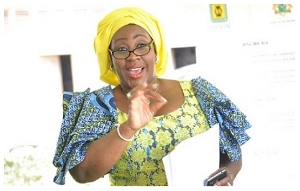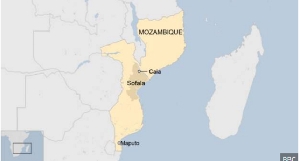Opinions of Wednesday, 12 January 2011
Columnist: Okoampa-Ahoofe, Kwame
Ablakwa’s Desperately Deft Attempt at Statesmanship
By Kwame Okoampa-Ahoofe, Jr., Ph.D.
It was quite refreshing, somewhat, I should say, to read about Ghana’s deputy Information minister, Mr. Samuel Okudzeto-Ablakwa, maturely commending the presidential candidate of the New Patriotic Party (NPP) for roundly refusing to partake of the gravy-train that was the shockingly shabby and exploitative handling of landed state property by the Kufuor administration. To be certain, I have already written about this question and even asked for a critical examination of the history of the entire practice, beginning with the fateful re-emergence of then-Flt.-Lt. Jerry John Rawlings on the Ghanaian political landscape on December 31, 1982. I have even suggested the possibility of widening the scope of such enquiry to encompass the heady period of Ghana’s First Republic, if also to sober up the incurably cynical and self-righteous Nkrumah fanatics.
In commending the former NPP Justice and Foreign Affair minister, Mr. Okudzeto-Ablakwa was also reported to have opined that “it was [rather] unfortunate that [Nana] Akufo-Addo was unable to prevail upon his colleagues to do the same in the interest of the nation” (See “Minister Extols Akufo-Addo” Ghanaweb.com/Chronicle 10/21/10).
Actually, there is absolutely nothing “unfortunate” about the former Abuakwa-South parliamentarian having, purportedly, not been able to prevail on his other “patriotic” colleagues – pun intended, of course – who decided to let raw and abject greed be their guide. There is nothing unfortunate in this regard because while, indeed, he was a key player in the NPP government that ruled the proverbial roost from 2000 to 2008, Nana Akufo-Addo was neither the substantive president nor the vice-president of Ghana. In other words, if President John Agyekum-Kufuor, in good conscience, recognized the wanton practice of highly placed officials in government treating landed state property as booty from the battlefront, as it were, then about the only appropriate response which Nana Akufo-Addo could offer was to simply ensure that his dignity and integrity were not compromised by such facile and patently unconscionable abuse of public trust.
Still, there is a mischievous angle to this story, in the very manner in which it was exposed by the media, which appears to have either deliberately or conveniently escaped the Akufo-Addo critics; and the latter, of course, include the entire membership of the ruling National Democratic Congress: and it is the fact that in bearing hard upon this facet of official misdeed, or malfeasance, the Atta-Mills government may well have been looking for a definitive method by which to effectively vanquish its most formidable opponent. For it cannot be sheer happenstance that in recent weeks, viciously public attempts have been made by key operatives in government to humiliate Nana Akufo-Addo, largely at traditional durbars and other cultural activities. And so it comes as rather refreshing that Mr. Okudzeto-Ablakwa should be describing Nana Akufo-Addo as a role model worthy of emulation by his peers and fellow citizens.
The deputy Information minister is also right on target in calling for the promulgation of a Public Officers’ Conduct Act. And while this, obviously, may not be the first of such calls, the imperative necessity for the same could not have come at a more opportune moment. But that twenty years of Mr. Rawlings and his P/NDC “revolutionary” governments did virtually nothing to improve Ghanaian political culture, says more about the apocalyptic wasteland into which the National Democratic Congress has plunged our country. Couple the latter with the P/NDC cult of summary executions and wanton expropriation of the wealth and property of “revolutionary scapegoats” – the so-called Enemies of the Revolution – and the grim state of affairs becomes unremittingly poignant.
On the question of an Akufo-Addo presidency, the auspicious possibility of the same, as it were, seems to have provoked a flagrantly regressive Ghanaian attitude which would rather morbidly privilege “canine humility” over the rarefied substance of forthright and responsible leadership. On this score, it would be quite edifying to have published the list of recent presidential candidates involved in this orgiastic looting of landed state property to enable Ghanaian voters to further enlighten themselves.
Nevertheless, the significant mention of Vice-President John Dramani Mahama in connection with the orgiastic grab for landed state property should give cause for a sit-up. This is not to say that his allegedly avid desire to partake in the wanton exploitation of the very people whose interests he publicly claims to serve could not have been readily predicted, especially in view of his hard-nosed and graphic characterization of Ghana as a horse to be perennially ridden at the expense of his ideological opponents during the 2008 electioneering campaign.
*Kwame Okoampa-Ahoofe, Jr., Ph.D., is Associate Professor of English, Journalism and Creative Writing at Nassau Community College of the State University of New York, Garden City. He is a Governing Board Member of the Accra-based Danquah Institute (DI) and the author of “Dr. J. B. Danquah: Architect of Modern Ghana” (iUniverse.com, 2005). E-mail: okoampaahoofe@optimum.net.
###












